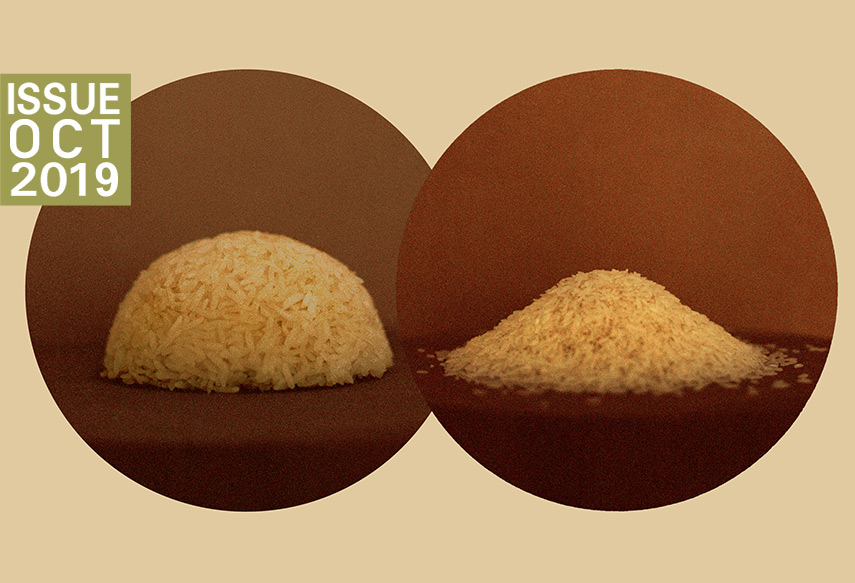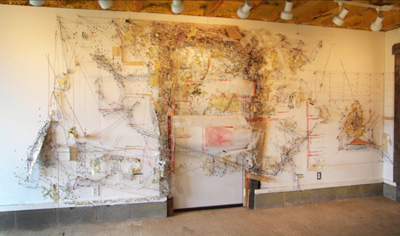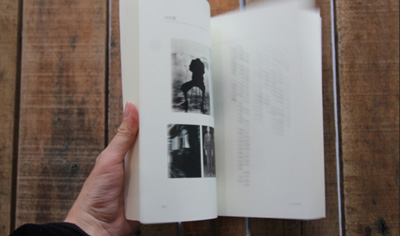- Featuring
- SJ Naudé
- Roya Amigh
- Seo Dae-kyung
- Alberto Pucheu
- Alejandro Ricaño
- Thomas Boberg and Sylvia Molloy
Welcome to our spectacular Fall 2019 edition gathering never-before-published work from a record-breaking 36 countries, including, for the first time, Azerbaijan via our spotlight on International Microfiction. Uncontained, this issue’s theme, may refer to escape either from literal prisons—the setting of some of these pieces—or from other acts of containment: A pair of texts by Czech author Radka Denemarková and Hong Kong essayist Stuart Lau tackle the timely subject of Chinese authoritarianism. In “The Container,” Thomas Boberg performs the literary equivalent of “unboxing” so popular on YouTube these days, itemizing a list of things in a container shipped from Denmark to the Gambia—all in a withering critique of global capitalism.
The container lends itself to several metaphors but none as poignant or as on point as—you guessed it, dear Asymptote reader—the container of language itself, as suggested by London-based photographer Elizabeth Gabrielle Lee’s brilliant cover highlighting the symbolism of the humble rice grain. This commodity has, like language, been exported, exchanged, enhanced, and expressed in various forms from its various origins across the planet. Even when a state attempts to erase language, resistance remains possible, as poet Fabián Severo—the only Uruguayan writing in Portuñol, the language of the country's frontier with Brazil—demonstrates: “This language of mine sticks out its tongue at the / dictionary,” he sings, “dances a cumbia on top of the maps / and from the school tunic and bow tie / makes a kite / that flies / loose and free through the sky.” In one of Argentine writer Sylvia Molloy’s many profound riffs on the bilingual condition, Molloy claims that “one must always be bilingual from one language, the heimlich one, if only for a moment, since heim or home can change.”
As long as Asymptote exists, the container that is our Fall 2019 edition will continue to host gems like our exclusive interview with Puerto Rican activist Raquel Salas Rivera, fiction by SJ Naudé and Kalina Maleska, poetry by superstars Osip Mandelstam and Monchoachi, drama by Alejandro Ricaño, visual works by installation artist Roya Amigh and experimental biographist Chang Wen-Hsuan, a delightful Writers on Writers essay by Luis Chitarroni on Benjamin Constant, along with in-depth reviews of the latest in world literature. Step right in, poke around, stay as long as you like. And, if you’re so moved, help us spread the word on Facebook and Twitter, or better yet, pledge your support as a sustaining, or even masthead, member. Our nine years have been something of a miracle—especially since we do not receive ongoing support from any institution—so thank you for being with us as we enter our tenth year.
—Lee Yew Leong, Editor-in-Chief
Editorial Team for Issue October 2019
Editor-in-Chief: Lee Yew Leong (Taiwan/Singapore)
Senior Editor: Sam Carter (USA)
Assistant Managing Editors: Janani Ganesan (India), Josefina Massot (Argentina), Rachael Pennington (Spain/UK), Garrett Phelps (UK/USA), and Lou Sarabadzic (UK/France)
Section Editors:
Lee Yew Leong (Taiwan/Singapore)
Ellen Jones (UK)
Varun Nayar (India)
Caridad Svich (USA/UK)
Ah-reum Han (USA/South Korea)
Victoria Livingstone (USA)
Eva Heisler (USA)
Henry Ace Knight (USA)
Sarah Timmer Harvey (USA/The Netherlands)
Editor of Special Feature on International Microfiction: Lee Yew Leong (Taiwan/Singapore)
Assistant Editors: Alyea Canada (USA), Ben Dreith (Canada), Helena Fornells (UK), Barbara Halla (France), Marina Martino (UK), Erik Noonan (USA), Chris Power (USA), Andreea Scridon (UK/Romania), Lindsay Semel (Portugal/USA), P. T. Smith (USA), and Lin Chia-wei (Taiwan)
Contributing Editors: Ellen Elias-Bursac (USA), Aamer Hussein (Pakistan/UK), Sim Yee Chiang (Singapore), Dylan Suher (USA), and Adrian West (USA)
Translation Tuesdays Editor: Ben Dreith (Canada)
Art Director: Lee Yew Leong (Taiwan/Singapore)
Assistant Director, Educational Arm: Barbara Thimm (USA/Germany)
Editors-at-large, Argentina: Allison Braden and Sarah Moses
Editor-at-large, Brazil: Daniel Persia
Editor-at-large, El Salvador: Nestor Gomez
Editor-at-large, Guatemala: José García
Editors-at-large, Hong Kong: Jacqueline Leung and Charlie Ng Chak-Kwan
Editor-at-large, Iran: Poupeh Missaghi
Editor-at-large, Lebanon: Ruba Abughaida
Editor-at-large, Mexico: Paul Worley
Editor-at-large, Morocco: Hodna Nuernberg
Editor-at-large, Romania and Moldova: MARGENTO
Editor-at-large, Slovakia: Julia Sherwood
Editor-at-large, Taiwan: Vivian Chih
Editor-at-large, Tibet: Shelly Bhoil
Masthead for Issue October 2019
Fiction and Poetry: Lee Yew Leong
Nonfiction: Varun Nayar
Drama: Caridad Svich
Criticism: Ellen Jones
Writers on Writers: Ah-reum Han and Victoria Livingstone
Special Feature on International Microfiction: Lee Yew Leong
Visual: Eva Heisler
Interviews: Henry Ace Knight and Sarah Timmer Harvey
Illustrations and Cover: Elizabeth Gabrielle Lee
Assistant Managing Editor (Issue Production): Lou Sarabadzic
Assistant Managing Editors (supervising Assistant Editors): Josefina Massot and Garrett Phelps
Assistant Managing Editors (supervising Editors-at-Large): Janani Ganesan and Rachael Pennington
Communications Director: Samuel Kahler
Director of Outreach: Alessandro Mondelli
Chief Executive Assistant: Lucy Morgan
Executive Assistants: Zane Lilley and Bernice Seow
Assistant Blog Editors: Sarah Moore and Xiao Yue Shan
Guest Artist Liaison: Berny Tan
Co-Chief Copy Editors: Steven Teref and James Shrieve
Copy Editors: Anna Aresi, Andrea Blatz, Devarati Chakrabarti, Choo Suet Fun, Angela Glindemann, Clayton McKee, and Lara Zammit
Technical Manager: József Szabó
English Social Media: May Huang, Leah Scott, and Ananya Sriram
Spanish Social Media: Sergio Serrano
French Social Media: Filip Noubel
Chinese Social Media: Jiaoyang Li and Jessica Wang
Marketing Manager: Lauren Chamberlain
Marketing Analyst: Nicolás Llano Linares
Graphic Designer: Anna Wang
Communications Manager: Alexander Dickow
Assistant Director, Educational Arm: Barbara Thimm
Educational Arm Assistants: Kasia Bartoszyńska and Mary Hillis
Asymptote would like to acknowledge the support especially of: Astrid Alben, Martin Orwin, and Nick Chapman.
For their generous donations, our heartfelt thanks go too to Anna Aresi, Anne Berk, Christopher Stout, Daniel Hahn, Danielle Farnbaugh, Ellen Elias-Bursac, Geoffrey Howes, Il Park, Jeffrey Boyle, Joachim Redner, Lara Norgaard, Mallory Truckenmiller, Mark Cohen, Martha Collins, Martin Ingebrigtsen, Matthew Mazowita, Monty Reid, Nancy Relaford, Pavlos Stavropoulos, Ruth Diver, Siobhan Mei, Theresa Henderson, and Velina Manolova. We welcome new supporters and members of the Asymptote family Alejandra Ramirez Olvera, Darcy Hurford, David Burnett, Deewang Bhamidipati, Harry Leeds, Genia Blum, Michelle Quay, Rachelle Chinnery, and Sona Van.



